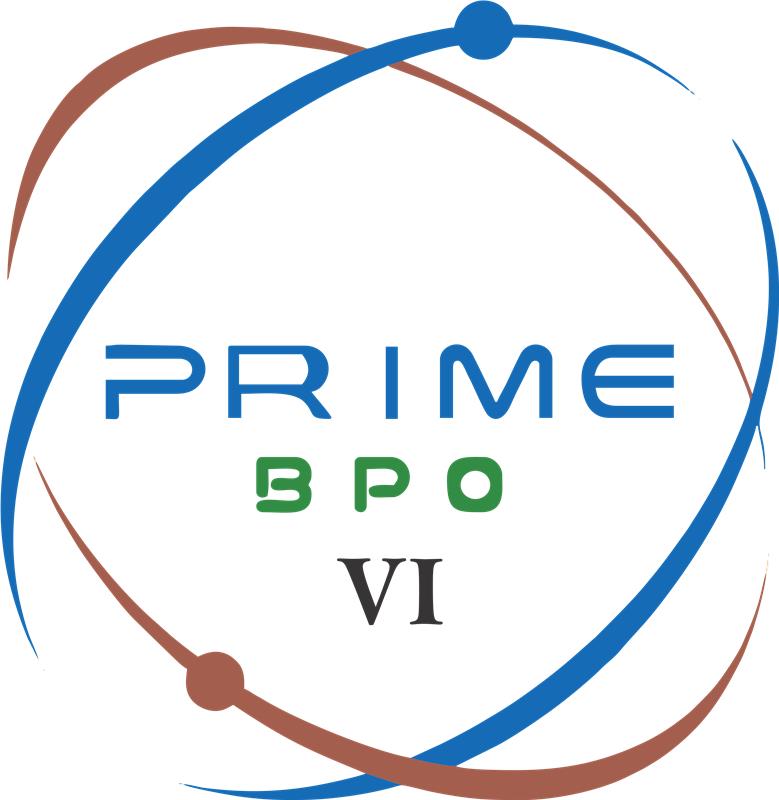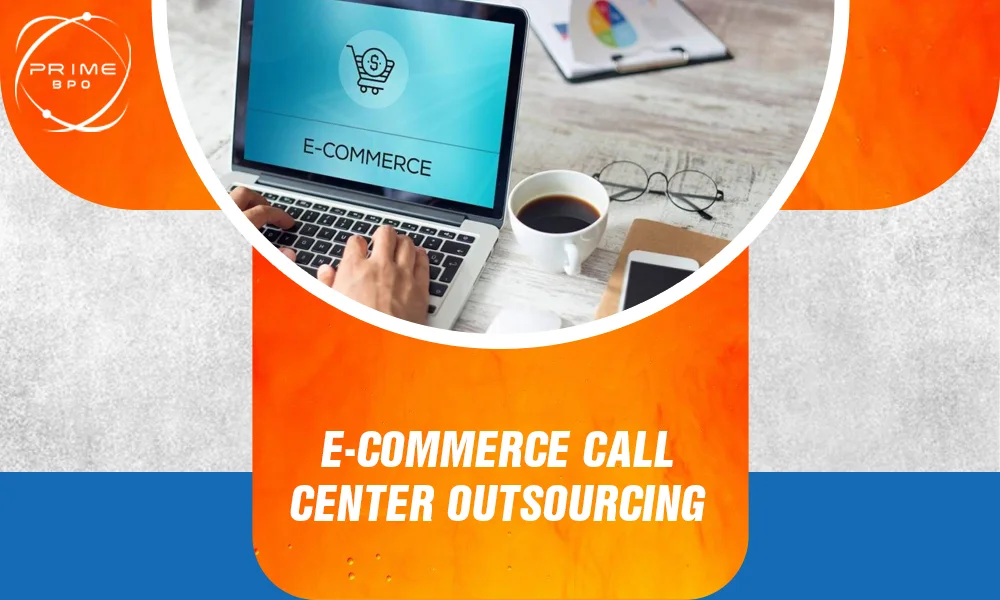In the dynamic world of e-commerce, where customer expectations soar, and the marketplace never sleeps, the secret to maintaining a competitive edge lies in exceptional customer service. E-commerce businesses constantly seek innovative ways to provide excellent customer support while optimizing their operations. This is where E-commerce Call Center Outsourcing Best Practices come into play, offering a strategic solution to meet the ever-growing demands of the online shopping world.
This is where the strategic move of e-commerce call center outsourcing comes into play, transforming how businesses interact with their customers. A great customer experience is more than just answering queries; it's about establishing trust, building relationships, and driving growth. Let's discuss how outsourcing your e-commerce call center can help your business succeed in this digital age.
What is E-commerce Call Center Outsourcing?
E-commerce Call Center Outsourcing is a strategic business practice where online retailers entrust their customer support and service operations to third-party service providers or call centers. In this arrangement, e-commerce companies leverage the expertise, resources, and scalability of external partners to manage their customer interactions effectively.
Get Free Quotes
Customized Options Await
These outsourcing firms specialize in handling a wide range of customer queries, including product inquiries, order tracking, returns, and general support, across various communication channels such as phone, email, live chat, and social media. By outsourcing these critical functions, e-commerce businesses can focus on core activities like marketing, product development, and scaling their operations, while ensuring that their customers receive high-quality, round-the-clock support. It is a strategic move that enables e-commerce companies to enhance customer satisfaction, streamline operations, and ultimately achieve sustainable growth in the competitive online marketplace.
Understanding the Role of E-commerce Call Center Outsourcing
Outsourced call centers play a vital role in e-commerce by acting as the primary conduit for customer interactions, handling everything from order inquiries to support requests. Their responsibilities extend beyond mere communication; they uphold the brand's reputation, enhance customer satisfaction, and even contribute to sales growth.
In e-commerce, where transactions lack face-to-face interactions, effective communication becomes paramount. Outsourced call center e-commerce fills this gap by providing a human touch, assisting customers through their purchasing journey, addressing queries, and resolving issues promptly.
When Do You Need an e-commerce outsourcing service?
E-commerce outsourcing service is a Best Practices stand at the forefront of this evolution, offering a strategic lifeline for businesses seeking to excel in the digital marketplace. Here are some signs that it's time to consider outsourcing:
-
Rapid Business Growth:
As your e-commerce business expands, so does the volume of customer interactions. Outsourcing can help manage this increased workload without compromising service quality.
-
Need for Specialized Skills:
E-commerce customer service can be complex, requiring specific skills and knowledge. Outsourcing to experts can ensure your customers receive professional support.
-
Cost Efficiency:
Maintaining an in-house call center e-commerce can be expensive.
-
24/7 Customer Support:
The global nature of e-commerce demands around-the-clock customer service. outsource call center e-commerce can provide this continuous support across various time zones.
-
Scaling for Seasonal Demands:
E-commerce businesses often experience seasonal spikes in customer queries. Outsourcing can provide the flexibility to scale up or down based on seasonal demands.
Get Free Quotes
Customized Options Await
-
Focus on Core Business Functions:
Outsourcing allows you to concentrate on core business areas, such as product development and strategic planning, while the outsourced team handles customer interactions.
E-commerce Call Center Outsourcing Best Practices
E-commerce Call Center Outsourcing Best Practices are pivotal in enhancing online business customer satisfaction and operational efficiency. When executed precisely, these practices can empower e-commerce companies to deliver exceptional customer experiences while streamlining their support operations. Here are some key best practices to consider:
Define What You Need from a Customer Service Team
Assess Your Requirements: Understand the specific needs of your e-commerce business, including the volume of queries, type of customer interactions, and peak hours. This helps in defining the scope and scale of services you require.
Set Clear Objectives: Establish clear goals for your customer service team, such as improving response times, increasing customer satisfaction scores, or boosting sales through upselling and cross-selling.
Identify Key Metrics: Determine the key performance indicators (KPIs) that are crucial for your business, like first call resolution, average handle time, or net promoter score (NPS).
Look for E-commerce Customer Service Outsourcing
Research Potential Partners: Conduct thorough research to identify outsourcing partners with a proven track record in e-commerce.
Evaluate Technology and Infrastructure: Ensure the outsourcing partner uses state-of-the-art technology and robust infrastructure to handle your e-commerce outsourcing needs effectively.
Consider Cultural Fit: The provider should align with your company's culture and values to ensure a seamless extension of your brand to your customers.
Manage Your New Team
Regular Training and Updates: Keep the outsourced team informed about new products, policies, and any changes in your e-commerce outsourcing platform to maintain service quality.
Effective Communication: Establish efficient communication channels for regular updates, feedback, and discussions to align both sides.
Performance Monitoring: Regularly monitor the performance of the outsourced team against the set KPIs and provide constructive feedback for continuous improvement.
Choose a Flexible Provider
Scalability: The provider should be able to quickly scale up or down based on your business needs, especially during peak seasons or sales events.
Adaptability: They should be agile and adaptable to changing market trends and customer preferences.
No Lock Periods
Flexible Contracts: Opt for flexible contracts that do not bind you to long-term commitments. This allows you to adjust your outsourcing strategy as your business evolves.
Negotiate Terms: Work with the provider to negotiate terms that offer mutual benefits and flexibility.
Understand Your Provider's Training and Hiring Practices
Quality of Staff: Inquire about the hiring process, qualifications, and experience required for their staff, ensuring they are equipped to handle your customer service needs.
Continuous Learning: Check if the provider has a continuous learning program to keep their staff updated on the latest e-commerce trends and customer service best practices.
Get Free Quotes
Customized Options Await
Set Up Chatbots
Implement AI Solutions: Utilize AI-driven chatbots to handle routine queries, freeing up human agents for more complex customer interactions.
Customization: Ensure the chatbots can be customized to reflect your brand's tone and style, providing a consistent customer experience.
Data Security and Privacy Compliance: Ensure your outsourcing partner adheres to data security norms and privacy laws, especially in handling customer information.
Regular Performance Reviews: Conduct periodic reviews to assess the performance of the outsourced call center. This helps in identifying areas of improvement and celebrating successes.
Fostering a Partnership Approach: Treat the outsourcing relationship as a partnership. Encourage open communication and collaboration for continuous improvement and innovation.
Conclusion
Outsourcing your e-commerce call center can be a strategic move that drives customer satisfaction, efficiency, and business growth. Call center e-commerce Outsourcing Best Practices serve as the cornerstone of success in the ever-evolving world of online retail. By carefully selecting strategic partners, integrating seamlessly, embracing multichannel support, maintaining 24/7 availability, and harnessing the power of data-driven insights, e-commerce businesses can unlock the full potential of their customer service operations.
In doing so, they enhance customer satisfaction and position themselves as industry leaders, poised for growth and innovation in the dynamic digital marketplace. As the e-commerce landscape evolves, those who adopt and consistently refine these best practices will undoubtedly thrive, forging lasting connections with customers and reaping the rewards of a well-executed outsourcing strategy. Call center outsourcing for e-commerce allows you to elevate customer service, scale your operations, and grow your business. Are you ready to take this transformative step?
Frequently Asked Questions (FAQs)
1. What is eCommerce outsourcing?
E-Commerce outsourcing involves contracting external firms or individuals to handle specific tasks or functions related to an eCommerce business. This can include tasks such as website development, design, product sourcing, inventory management, order fulfillment, customer service, and digital marketing.
2. What is BPO in eCommerce?
BPO (Business Process Outsourcing) in eCommerce refers to outsourcing specific business processes or functions of an eCommerce business to external service providers. This may include customer support, order processing, data entry, content moderation, and other back-office tasks related to eCommerce operations.
3. What is eCommerce contact?
E-Commerce contact refers to the interaction points or channels through which customers engage with an eCommerce business. These contact points may include the company's website, mobile app, social media profiles, email, live chat, phone support, and physical stores (if applicable). Effective management of eCommerce contacts is essential for providing a seamless and satisfying customer experience.
4. What are the 4 types of e-commerce?
The four types of eCommerce are:
1. Business-to-Consumer (B2C) eCommerce: Online transactions between businesses and individual consumers.
2. Business-to-Business (B2B) eCommerce: Online transactions between businesses, such as wholesale transactions or procurement processes.
3. Consumer-to-Consumer (C2C) eCommerce: Online transactions between individual consumers, facilitated by a third-party platform or marketplace.
4. Consumer-to-Business (C2B) eCommerce: Online transactions where individual consumers offer products or services to businesses, such as freelance services or influencer marketing collaborations.






